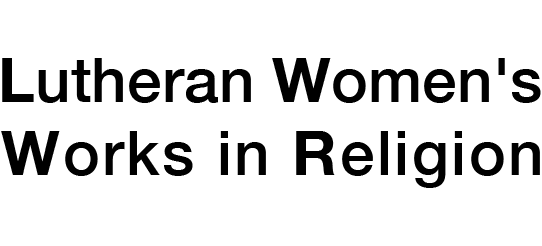Bibliography Author: Rivta H. Williams
BIBLICAL STUDIES
Rivta H. Williams "Chapter 14 – Purity, Dirt, Anomalies and Abominations" In The Social World of the New Testament. eds. Dietmar Neufeld and Richard E. DeMaris. Routledge: Taylor & Francis Group 2010 : 207-219Drawing on the work of anthropologist Mary Douglas, I define purity rules as symbolic expressions of a group‘s identity and core values. Reading Mark 7:1-23 through this lens demonstrates that Jesus and the Pharisees are both concerned about the purity of personal and social bodies, but differ in their assessment of what threatens that purity and how best to preserve the body‘s wholeness and integrity.
BIBLICAL STUDIES
Rivta H. Williams "Bishops as Brokers of Heavenly Goods: Ignatius to the Ephesians" In Life and Culture in the Ancient Near East. ed. Richard E. Averbeck, Mark Chavalas, David Weisberg. Bethesda, MD: CDL Press 2002 : 389-398In this essay I contend that the Greco-Roman system of patron-broker-client relations shaped early church structures in important ways, even when the language of patronage was not explicitly used. This is especially evident in Ignatius of Antioch‘s letter to the Ephesians in which he ascribes various functions to bishops that most resemble the role of brokers of heavenly goods in a system of divine patronage.
BIBLICAL STUDIES
Rivta H. Williams "Chapter 5: An Illustration of Historical Inquiry: Histories of Jesus and Matthew 1:1-25" In Handbook of Early Christianity and the Social Sciences. ed. Anthony J. Blasi, Paul-Andre Turcotte, Jean Duhaime. Walnut Creek, CA: Alta Mira Press 2002 : 105-124This essay integrates cultural anthropological insights about life in the ancient Mediterranean world with traditional historical critical methods for reconstructing the life of Jesus. As I assess the historicity of Matthew‘s birth narrative, I ask how its claims would have been understood by the 1st century Judeans in the text and who produced the text, specifically, would claims for virginal conception make sense to them?
BIBLICAL STUDIES
Rivta H. Williams The Bible’s Importance for the Church Today., Minneapolis: Augsburg Fortress 1993This book is about remembering why our ancestors in faith wrote the Bible and recovering its importance for the church today. I seek to provide an alternative to literalism and liberalism by integrating ancient perspectives with contemporary scholarship so that we can once again claim the Bible as a means of grace that forms, informs, transforms and reforms the faith of individuals and communities.
THEOLOGY
Rivta H. Williams Stewards, Prophets, Keepers of the Word: Leadership in the Early Church., Peabody, MA: Hendrickson Publishers 2006I explore the roles of stewards, prophets, keepers of the word in the ancient Mediterranean cultures in order to demonstrate how early church leaders in the first and second centuries drew on these roles to subvert dominant power structures, justify innovation, create and preserve the emerging traditions of and about Jesus. This study draws on anthropological insights to critically assess Greco-Roman and early Christian sources.
BIBLICAL STUDIES
Rivta H. Williams 1-2 Corinthians, Leader and Learner., Minneapolis: Augsburg Fortress 2011(here is where annotated bib info would go)
THEOLOGY
Rivta H. Williams "Homosexuality and the Bible – An ELCA Lutheran Scholar‘s Perspective" Winter In Journal of Theological and Justice Opinion. vol. 1, no. 1, 2004This is an op-ed piece arguing for a critical traditionalist hermeneutic that avoids both literalism and liberalism in reading the biblical texts most frequently used to condemn homosexuality.
BIBLICAL STUDIES
Rivta H. Williams "Readers‘ Guide: Social Memory" In Biblical Theology Bulletin. vol. 41, no. 4, 2011 : 1-12This article is intended to provide readers with an easily accessible overview of the concept of social memory, its roots in the work of Maurice Halbwachs, and the various ways that it is being used by biblical scholars to understand the history of the Bible and the nature of its contents.
BIBLICAL STUDIES
Rivta H. Williams "Ethical Deliberation and the Biblical Text – A Lutheran Contribution to Reading the Bible" Spring In Intersections. vol. 22, 2006 : 21-25In this article I lay out the contours of a Lutheran critical traditionalist hermeneutic that is ethically accountable while paying attention to the meaning of biblical texts and how they serve Christ‘s mission. I use this hermeneutic to critique Robert Gagnon‘s reading of Romans 1:18-32 and to offer an alternative reading of the same text.
BIBLICAL STUDIES
Rivta H. Williams "Social Memory and the Didache" Spring In Biblical Theology Bulletin. vol. 36, 2006 : 35-39This article explores the Didache as a written artifact of social memory documenting the socialization program of a particular network of Israelite Jesus people. Drawing on the work of sociologist Jeffry Olick, I demonstrate that the Didache establishes among non-Israelite recruits by incorporating a specific Jesus group memory genre, the sayings of Jesus, into a more widely known Mediterranean memory genre, the two ways discourse.

